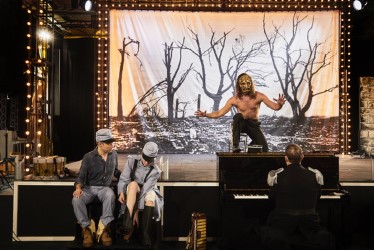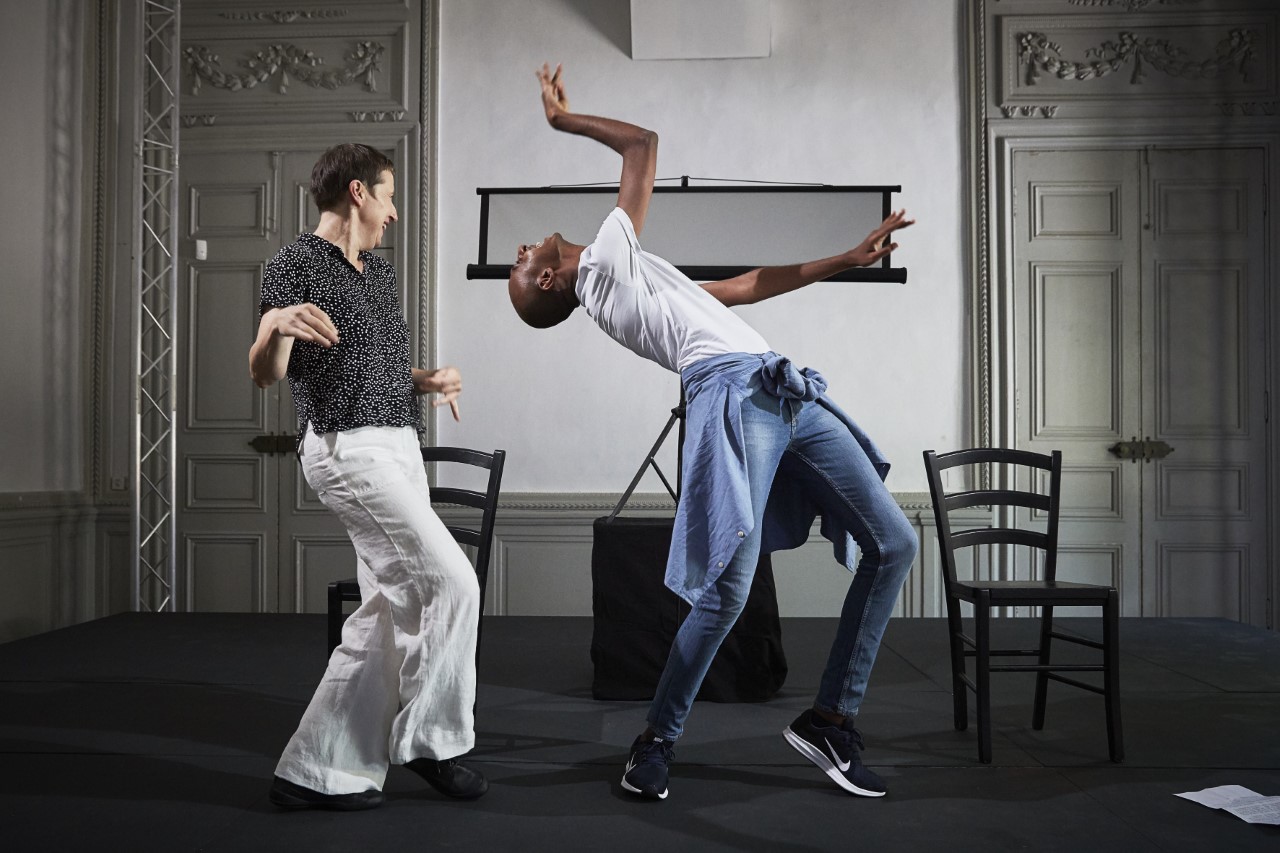Avignon 2019: ‘L’Amour vainqueur’: la crème brulée of the Avignon Festival 2019

Photo Christophe Raynaud de Lage
What a delight, a relief and a sheer pleasure to sit through Olivier Py’s operetta for children and adults L’AMOUR VAINQUEUR. One hour long, this musical adaptation of Brothers Grimm’s Maid Maleen tale takes the audience through the history of French theatre, including its highbrow traditions of the Alexandrine poetry, usually reserved for tragedies, and the charming, even if it is a bit over-the-top, theatricality of its cabaret performances and musical halls.
The story is your typical children’s tale with the charming Prince and Princess in its centre. There are also an evil King and even more malicious General, and a pair of simpletons helping the lovers to get together. Olivier Py’s tale, of course, has an adult like twist: at the end it was aimed both for the children and their guardians.
Py’s Princess is brave and open minded, she also likes to practice her free will. A true feminist, she refuses to marry the English King because she loves another. For that, she is severely punished. Her father sends her to the tower for seven years without a chance to talk to her beloved or see the light of the day. When she is finally released from her prison, Princess learns that the world of her childhood has vanished. There was a devastating war and most likely Prince, the love of her life, has perished in it. …
